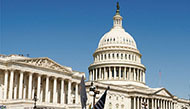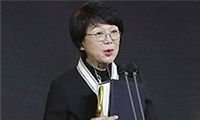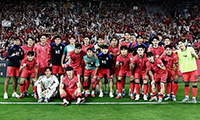▶ NICHOLAS D. KRISTOF
“I was on my way to New York to make the speech,” Turner recalled to me. “I just thought, what am I going to say?”
So, in front of a stunned dinner audience, he announced a $1 billion gift to United Nations causes such as fighting global poverty.
In nominal terms, before adjusting for inflation, that semiaccidental donation was, at the time, believed to be the biggest single gift ever made, and it has helped transform philanthropy.
Tycoons used to compete for their place on the Forbes and Fortune lists of wealthiest people. If they did give back, it was often late in life and involved museums or the arts. They spent far more philanthropic dollars on oil paintings of women than on improving the lives of real women.
Turner’s gift helped change that culture, reviving the tradition of great philanthropists like Rockefeller and Carnegie. Turner publicly began needling other billionaires — including Bill Gates and Warren Buffett — to be more generous. That was a breach of etiquette, but it worked.
“It’s a starting point for me of this modern era of high-profile big public giving,” reflected Matthew Bishop, co-author of “Philanthrocapitalism,” a terrific book about how the business world is reshaping philanthropy. “He called on others to step up, which did have a crystallizing effect on others. It allowed journalists and others who were talking to Bill Gates to say: ‘Why aren’t you giving more?’ ” Then they tormented Buffett with the same question.
Ultimately, Gates and Buffett made huge contributions that are transforming the struggle against global disease and poverty. My hunch is that Gates will be remembered less for his work on personal computers than for his accomplishments against malaria, AIDS and poverty itself.
Gates and Buffett are both now recruiters for the Giving Pledge, which commits zillionaires to give away at least half their wealth. The giving pledge adds to the expectation that those who have won the global jackpot should give something back.
Turner channeled his money through the United Nations Foundation, where it was leveraged to get other contributions so as to bring $2 billion to finance causes from malaria to polio, from climate change to family planning.
The gift brought new respect to the United Nations and made it increasingly fashionable for billionaires to worry about global poverty. These tycoons bring not just their checkbooks to the table but also a business sensibility that introduces greater rigor and evaluation to the world of bleeding hearts.
All this has helped shine a greater spotlight on neglected issues — which, in turn, has led to extraordinary results. A study this month reported that infant mortality around the world dropped by more than half from 1990 to 2010. That’s millions of lives saved each year.
Of course, not everybody has gotten the memo. Take Donald Trump, who has contributed his name to a foundation but little more. An investigation by The Smoking Gun Web site described him as possibly “the least charitable billionaire in the United States,” for he apparently gave the foundation just $3.7 million — over 20 years. Trump, who has said he is worth $7 billion, is not even the largest contributor to his own foundation.
(A spokesman for Trump suggested that it would be “totally incorrect” to characterize him as uncharitable, saying that he has also donated land in upstate New York for public parks and “millions of dollars” to other causes.)
Turner isn’t shy about encouraging others to jump on board. When I asked if he had any advice for my readers, he grew particularly animated: “You don’t have to have any money to make a difference; you can pick up trash walking down the street, and I do that all the time,” he said. “You can volunteer your time. You can be a big brother or a big sister.”
Look, it makes me a little squeamish to extol a billionaire, for our society already has too much worship of the wealthy — and, in any case, the working poor in America are often more generous in percentage terms (and in volunteering) than those far better off.
That said, it warms my heart that a mogul donated $1 billion to enliven a speech, didn’t even put his name on the foundation and then let the money quietly save lives around the world.
If you’re still reading, Donald Trump, it’s your move.
스마터리빙
more [ 건강]
[ 건강]이제 혈관 건강도 챙기자!
[현대해운]우리 눈에 보이지 않기 때문에 혈관 건강을 챙기는 것은 결코 쉽지 않은데요. 여러분은 혈관 건강을 유지하기 위해 어떤 노력을 하시나요?
 [ 건강]
[ 건강]내 몸이 건강해지는 과일궁합
 [ 라이프]
[ 라이프]벌레야 물럿거라! 천연 해충제 만들기
 [ 건강]
[ 건강]혈압 낮추는데 좋은 식품
[현대해운]혈관 건강은 주로 노화가 진행되면서 지켜야 할 문제라고 인식되어 왔습니다. 최근 생활 패턴과 식생활의 변화로 혈관의 노화 진행이 빨라지고
사람·사람들
more많이 본 기사
- 식당 가면 4% 음식세 더 내야
- [미주 한국일보 2026년 연중 기획 사업] 매년 풍성하고 유익한 행사… 올해도 한인사회와 함께
- 남궁옥분 “故 송도순, 열흘 전부터 혼수상태..큰 별 졌다”
- 2026 북중미 월드컵에서 사용될 공인구는 ‘트리온다’
- 새로운 여명… 이제 다시 희망이다
- [2026 북중미 월드컵 상금은] 6억5천만달러 ‘돈 잔치’… 우승하면 5천만달러
- 베네수엘라, 美압박에 맞서 미국인 구금…최소 5명 체포
- [새해 정치 풍향계… 2026 중간선거 전망] 트럼프 2기 중간평가의 시간… 민심은 어디로
- 워싱턴북한선교회, 통일선교연합기도회
- 16개 경기장 면면은… LA 소파이 스테디엄에 ‘뜨거운 함성’ 몰려온다
- VA, 새해부터 스팸 전화·문자 강력 규제
- 워싱턴VA대, 88만 달러 그랜트 받아
- 경희대 워싱턴동문회 송년모임
- 평통 미주지역회의, 워싱턴 시민단체와 연대
- 홀인원-MD 80세 오차환 씨
- 영킨 주지사, 620만 달러 직업훈련 지원 발표
- 건강보험 보조금 종료…중간선거 낀 새해 최대 정치쟁점으로
- “박나래 술잔에 맞아 4바늘 꿰매”..전 매니저, 경찰에 상해진단서 제출
- PW 카운티 교육청이 개인정보 유출… 학부모들 분노
- 2025년 MD 한인사회 10대 뉴스
- 2025년 작별 고한 한인사회 원로들
- 아듀! 2025년
- “오직 십자가의 주님을 따르겠다”
- 페어팩스 상습 차량 절도범 검거…32개 혐의로 기소
- 유승민, ‘李정부 총리 제의설’ 확인… 1
- 해외동포세계지도자협의회, 사랑의 연탄 나눔 행사
- 한인복지센터 ‘자원봉사자 감사의 날’
- LA 올림픽, 도시 전체가 경기장… 한인타운 인근서도 경기
- 글로벌어린이재단 워싱턴 살렘 센터에 3천달러 기부
- 월남전참전유공자 전우산악회 송년모임
- ‘힐센터 갤러리 공모전’서 입상
- 페닌슐라한인회, 참전용사 위문…평화의 사도 메달 수여
- 이혜훈 ‘보좌진 갑질’ 녹취 폭로…국… 2
- [미리 보는 2028년 LA 하계올림픽] 역대 최대 규모… LA, 전 세계 스포츠 ‘메카’로
- 진태현♥박시은, 임신 시도 중단.. “2세 계획, 가슴 무너지지만 멈춰야”
- AOA 출신 권민아, 의식 회복→충격적 글·사진 삭제.. “눈앞에서 사라질 것”
- 미국·캐나다·멕시코, 2026 북중미 월드컵의 모든 것… ‘축구 대제전’ 전 세계 이목 미국으로
- 첫 무슬림 뉴욕시장 맘다니 취임…쿠란 위에 손 얹고 선서
- [2026 중간선거 - 뛰는 한인 정치인들] 한인 정치력 신장… 캘리포니아서 도약 이끈다
- 말리·부르키나파소 “미국인 오지마”…美입국 금지에 맞불
- 60년만에 은퇴하는 ‘오마하의 현인’ 버핏…누적 수익률은 610만%
- 코스트코행 40만달러 랍스터 도난당해...‘스푸핑, 위장트럭’까지…워싱턴주 등 미 화물절도 극성
- [말띠 독자들의 새해 소망·다짐] ‘붉은 말’처럼 역동적으로… 힘찬 도약과 성취를
- “추신수는 지울 수 없는 발자취 남겼다” 美 야구기자, 명예의 전당 투표서 ‘CHOO 선택’ 이유 밝혔다
- 불체자 의심 메디케이드 정보 공유 허용
- 한인 음악인들 ´희망의 선율´ 병오년 새해 밝힌다
- 재외동포, 2년 새 7만5천명 줄었다…181개국에 700만 명 거주
- [새해 암호화폐 시장은 어디로- 현황과 전망] “낙폭 뒤의 기회” vs.“불확실성 당분간 지속될 것”
- “트럼프 리조트의 마사지사들, 엡스타인에 방문 서비스 제공”
- 지방세 공제한도 1만→4만달러로 상향 1
1/5지식톡

-
 미 육군 사관학교 West Poin…
0
미 육군 사관학교 West Poin…
0https://youtu.be/SxD8cEhNV6Q연락처:wpkapca@gmail.comJohn Choi: 714-716-6414West Point 합격증을 받으셨나요?미 육군사관학교 West Point 학부모 모…
-
 ☝️해외에서도 가능한 한국어 선생님…
0
☝️해외에서도 가능한 한국어 선생님…
0이 영상 하나면 충분합니다!♥️상담신청문의♥️☝️ 문의 폭주로 '선착순 상담'만 진행합니다.☎️ : 02-6213-9094✨카카오톡ID : @GOODEDU77 (@골뱅이 꼭 붙여주셔야합니다…
-
 테슬라 자동차 시트커버 장착
0
테슬라 자동차 시트커버 장착
0테슬라 시트커버, 사놓고 아직 못 씌우셨죠?장착이 생각보다 쉽지 않습니다.20년 경력 전문가에게 맡기세요 — 깔끔하고 딱 맞게 장착해드립니다!장착비용:앞좌석: $40뒷좌석: $60앞·뒷좌석 …
-
 식당용 부탄가스
0
식당용 부탄가스
0식당용 부탄가스 홀세일 합니다 로스앤젤레스 다운타운 픽업 가능 안녕 하세요?강아지 & 고양이 모든 애완동물 / 반려동물 식품 & 모든 애완동물/반려동물 관련 제품들 전문적으로 홀세일/취급하는 회사 입니다 100% …
-
 ACSL 국제 컴퓨터 과학 대회, …
0
ACSL 국제 컴퓨터 과학 대회, …
0웹사이트 : www.eduspot.co.kr 카카오톡 상담하기 : https://pf.kakao.com/_BEQWxb블로그 : https://blog.naver.com/eduspotmain안녕하세요, 에듀스팟입니다…
케이타운 1번가
오피니언
 정숙희 논설위원
정숙희 논설위원샴페인, 마지막 날과 첫날을 위하여
 조지 F·윌 워싱턴포스트 칼럼니스트
조지 F·윌 워싱턴포스트 칼럼니스트 [조지 F. 윌 칼럼] 저무는 2025년에 안도의 한숨
 김동찬 시민참여센터 대표
김동찬 시민참여센터 대표 [미국은 지금] 책임 있는 자본 없으면 커뮤니티 미래도 없다
 성영라 수필가 미주문협 부이사장
성영라 수필가 미주문협 부이사장 [수요 에세이] 다시, 제자리로 돌아와서
 신경립 / 서울경제 논설위원
신경립 / 서울경제 논설위원 [만화경] 경영자의 ‘문제적’ 사과
 문태기 OC지국장
문태기 OC지국장 한인 정치력 업그레이드 기대
 민경훈 논설위원
민경훈 논설위원세계 역사를 바꾼 동물
 박홍용 경제부 차장
박홍용 경제부 차장 한인사회가 주목해야 할 새해 경제
 박영실 시인·수필가
박영실 시인·수필가 [화요칼럼] 피드백
1/3지사별 뉴스

지방세 공제한도 1만→4만달러로 상향
2026년 새해에도 뉴욕과 뉴저지 한인들의 일상에 크고 작은 영향을 미치는 다양한 규정과 법규가 새롭게 바뀌게 된다. 당장 1일부터 뉴욕시 최…
■ 사고- 한동대·뉴욕한인청소년센터 국제여름캠프

식당 가면 4% 음식세 더 내야
2026년 1월1일부터 페어팩스 카운티 내 모든 음식점과 레스토랑에서 4%의 음식세(Food and Beverage Tax)가 새롭게 부과된다…
VA, 새해부터 스팸 전화·문자 강력 규제

‘붉은 말의 해’ 열리다
‘붉은 말의 해’를 알리기 위해 서울에서는 제야의 종이 울리고 부산에서는 화려한 드론쇼가 펼쳐지는등 세계 각국에서 새해를 맞이했다. 2026년…
권혁인 목사 /UMC 한인총회장 /산타클라라 연합감리교회

오늘 하루 이 창 열지 않음 닫기 




















































.png)


댓글 안에 당신의 성숙함도 담아 주세요.
'오늘의 한마디'는 기사에 대하여 자신의 생각을 말하고 남의 생각을 들으며 서로 다양한 의견을 나누는 공간입니다. 그러나 간혹 불건전한 내용을 올리시는 분들이 계셔서 건전한 인터넷문화 정착을 위해 아래와 같은 운영원칙을 적용합니다.
자체 모니터링을 통해 아래에 해당하는 내용이 포함된 댓글이 발견되면 예고없이 삭제 조치를 하겠습니다.
불건전한 댓글을 올리거나, 이름에 비속어 및 상대방의 불쾌감을 주는 단어를 사용, 유명인 또는 특정 일반인을 사칭하는 경우 이용에 대한 차단 제재를 받을 수 있습니다. 차단될 경우, 일주일간 댓글을 달수 없게 됩니다.
명예훼손, 개인정보 유출, 욕설 등 법률에 위반되는 댓글은 관계 법령에 의거 민형사상 처벌을 받을 수 있으니 이용에 주의를 부탁드립니다.
Close
x